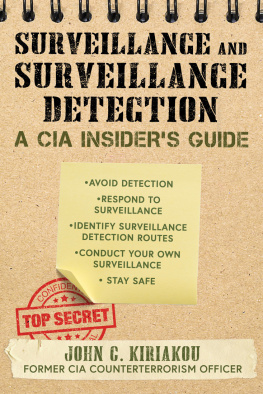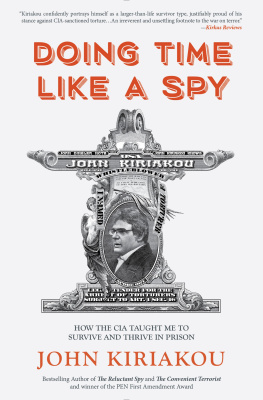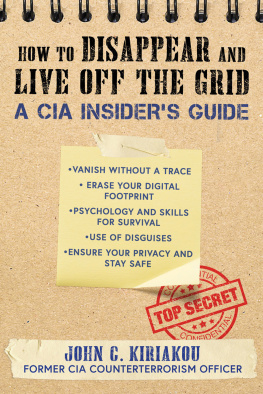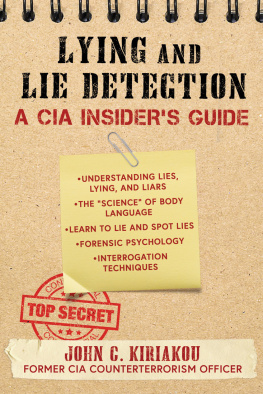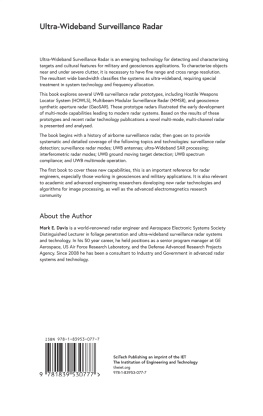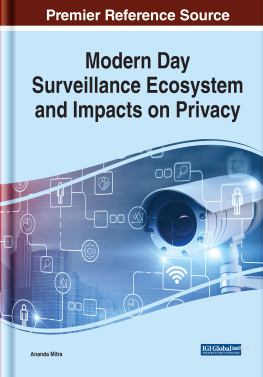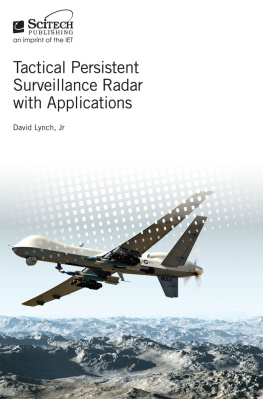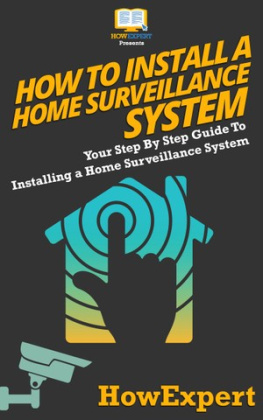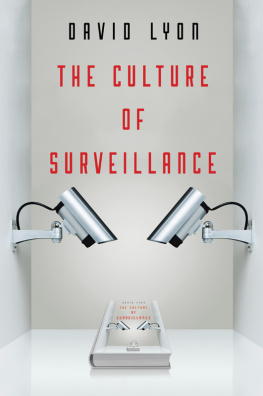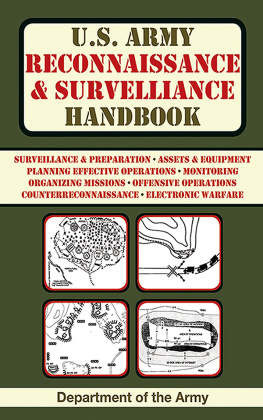

Copyright 2022 by John C. Kiriakou
All Rights Reserved. No part of this book may be reproduced in any manner without the express written consent of the publisher, except in the case of brief excerpts in critical reviews or articles. All inquiries should be addressed to Skyhorse Publishing, 307 West 36th Street, 11th Floor, New York, NY 10018.
Skyhorse Publishing books may be purchased in bulk at special discounts for sales promotion, corporate gifts, fund-raising, or educational purposes. Special editions can also be created to specifications. For details, contact the Special Sales Department, Skyhorse Publishing, 307 West 36th Street, 11th Floor, New York, NY 10018 or .
Skyhorse and Skyhorse Publishing are registered trademarks of Skyhorse Publishing, Inc., a Delaware corporation.
Visit our website at www.skyhorsepublishing.com.
10 9 8 7 6 5 4 3 2 1
Library of Congress Cataloging-in-Publication Data is available on file.
ISBN: 978-1-5107-5610-6
eBook ISBN: 978-1-5107-5615-1
Cover design by Kai Texel
Printed in the United States of America
For Charlie
Authors Note
All statements of fact, opinion, or analysis expressed are those of the author and do not necessarily reflect the position or views of the Central Intelligence Agency or any other US Government agency. Nothing in the contents should be construed as asserting or implying US Government authentication of information or Agency endorsement of the authors views. This material has been reviewed by the CIA to prevent the disclosure of classified information.
A Note on Redactions
Several passages in this book are blacked out, or redacted. This was done by the CIAs Publications Review Board, with input from the National Security Agencys review board. They argue that these passages are classified and are not releasable to the public. Although we disagree, we elected to keep the redactions in the text, and blacked out, for the purpose of continuity.
Introduction
T HE JOB OF EVERY CIA OPERATIONS officer is to recruit spies to steal secrets. Its really as simple as that. Every ops officer gets promoted, or fails, based on his ability to do this one thing. Its harder than it sounds. My CIA instructors told me on my very first day of ops training that I had to convince a target that I was his best friend to the point that he was willing to commit espionage for me. In some cases, he was committing treason for me. The stakes were that high. If we got caught, I would likely be expelled from whatever country I happened to be in. But my agent, the guy I had recruited, could spend the rest of his life in prison. In some parts of the world he could be executed. So I had to do my part to make sure that I was never, ever followed to or from a meeting. And I had to train the source, what the CIA calls the agent, to do the same.
Surveillance and surveillance detection are an art form. After learning how to recruit spies to steal secrets, CIA operations officers learn surveillance detection because they are the two most important skills a person can have. Your life, safety, and securityand that of your agentrely on your ability to safely get to and from a meeting.
The point of surveillance detection is to determine whether or not you are being followed by employing an increasingly sophisticated route, coupled with normal stops that a person would make in the course of running errands. Why? Because you want your surveillants to conclude, This guy isnt doing anything unusual. He stopped to pick up his dry cleaning, he stopped to buy a bottle of wine, and he stopped by buy a shower curtain. We wont waste time on him anymore. Well move on to the next person.
Thats in the world of intelligence. But if youre an average citizen going about your normal business, maybe you want to know if a potential mugger is following you. Perhaps you want to know if your spouse has hired a private investigator to follow you. Perhaps the cops, or an insurance investigator, are checking you out for some reason. Whatever it is, you have the right to know about your surroundings and about who may mean you harm. Thats what this book will teach you to do.
As I said, this is a skill that can be learned. You have to be calm, non-alerting, as we used to say at the CIA, and not raise suspicion. Fictional jewel thief A. J. Raffles explained to his less-experienced co-conspirator about surveillance: But I felt him following me when I made tracks; though, of course, I didnt turn around to see. Why not? says the co-conspirator. My dear Bunny, says Raffles, Its the very worst thing you can do. As long as you look unsuspecting, they keep their distance, and so long as they keep their distance you stand a chance. Once you show that you know youre being followed, its fight or flight for all youre worth. I never even looked around. And mind you never do the same.
With that said, you must always be aware of your surroundings. You must always pay attention. You must always be prepared for the worst.
Toward the end of my CIA career, I was assigned to a dangerous Third World country. Terrorist groups controlled the countryside and had a significant presence in many of the countrys largest cities. Foreigners were killed there with some regularity. One day I left my small hotel to drive to the office. Just like every other day, I left at a different time and took a different route so as not to establish a pattern. I was about a quarter of a mile away when I noticed a guy on a motorcycle, wearing a red helmet, and trying very hard to stay in my blind spot. What bothered me the most was the helmet. I dont know where anybody would even buy a helmet in this country, and certainly, he was the only person I ever saw wearing one. He broke away from me about a quarter mile from my office. I was worried, but not panicked. Was it a coincidence that a helmeted motorcyclist had followed me to work? I wasnt sure yet.
I worked a normal day, which in the aftermath of the 9/11 attacks was fourteen hours. It was dark when I left the office. I only got about a quarter mile when I saw him again. He was wearing the red helmet and he was parked under a tree, waiting for me. I was frightened, but I still thought that it could be a strange coincidence. So I took a completely illogical route back to the hotel. I made several right-hand turns, forcing me to make several lefts. I overshot the neighborhood the hotel was in, forcing me to double back. And all that time, the motorcycle was on me. He broke off and drove away as I approached the hotel.
This was the very definition of surveillance: Multiple sightings at time and distance. I had seen the motorcyclist more than once, at different times of the day, and at different places. I was under surveillance. The question now was whether the surveillance was hostile or friendly, such as the local police or intelligence service just checking me out.
The next morning, I woke up at 5:00 a.m., well before sunrise. I poked my head out the front door of the hotel and looked up and down the street, seeing nothing. I checked under my car for bombs and GPS devices, again seeing nothing. I got in the car by 5:30, pulled out of the gated hotel property, and made a right, heading into a residential neighborhood, rather than a left toward the highway that would have taken me directly to the office. And there he was again.
I worked hard to remain calm. Trying to lose him would have alerted him to the fact that I knew he was following me. I had to make him feel comfortable. I had to make him think that I believed it was normal for a helmeted motorcyclist to be following me to work for days at a time and at 5:30 in the morning. I took an odd route to the office again and, again, he broke off about a quarter of a mile before my destination.
Next page
